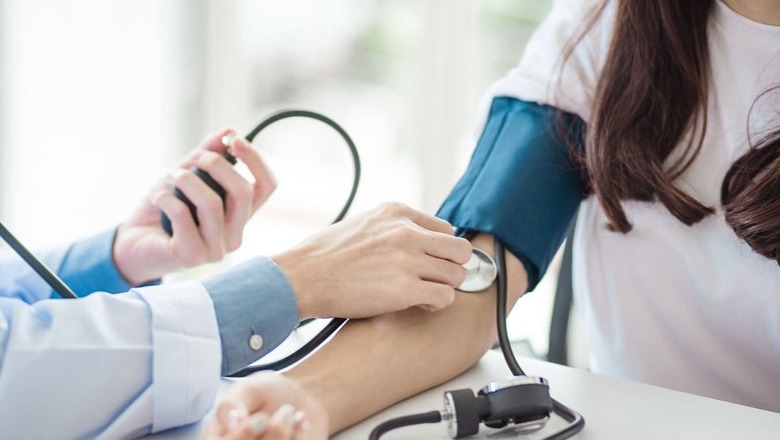
views
A drop in temperature results in various health concerns including diabetes, hypertension, heart health, and joint pain. In the colder months, people indulge in more savoury delicacies and become lazy, which leads the metabolism to slow down. The slow metabolism causes weight gain, which may result in a spike in blood pressure. During the winter months, the oxygen supply in the body decreases which results in arteries and blood vessels, putting more pressure on pumping the blood properly. This causes high blood pressure. Here are a few signs that may be considered as indicators when there is a rise in blood pressure:
Headaches
One of the symptoms of high blood pressure is frequent headaches. A sudden increase in the frequency or intensity of headaches during the winter season is a sign of blood pressure. These headaches may be accompanied by dizziness or a feeling of pressure in the head.
Fatigue and Weakness
High blood pressure drains the energy of the individual which causes fatigue and a general feeling of weakness. If you are feeling unusually tired or lack energy during the winter months, it is time for you to check your blood pressure levels, especially when you are experiencing other symptoms as well.
Shortness of Breath
Elevated blood pressure is directly linked with a cardiovascular system which results in shortness of breath. Due to this, you may experience difficulty in breathing. For those experiencing breathlessness without any obvious cause, visit your doctor immediately and check for increasing blood pressure. The colder the weather, the situation may become worse.
Chest Pain or Discomfort
Chest pain or discomfort is a symptom of high blood pressure. It is accompanied by other signs such as shortness of breath or fatigue. The chest pain may worsen gradually as it radiates to the arms, shoulders, neck, or jaw. Seek medical attention immediately in case of increasing discomfort.
While these are the symptoms that one needs to look for to know if your blood pressure is increasing, they may not necessarily indicate an increase in blood pressure.




















Comments
0 comment